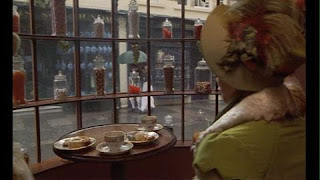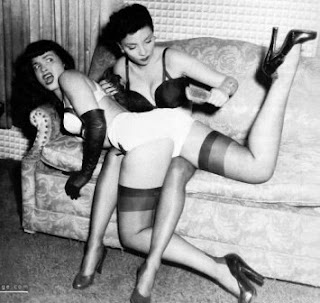I can’t remember my first.
 What an embarrassing confession. I know that I had my massive teenage Heyer binge after I read Austen, which must have been for high school, because I remember telling my English teacher that Heyer was just like Austen. Hmmm. But I can’t remember which book it was, although I remember earlier listening to girls complain about having to read P&P and it was so boring. Ha. The rest of us were blessed with Silas Marner, chosen, I’m convinced, because it was the shortest George Eliot–that it’s also complex and difficult apparently wasn’t a problem for a bunch of teenage girls who were really only interested in John, George, Paul and/or Ringo.
What an embarrassing confession. I know that I had my massive teenage Heyer binge after I read Austen, which must have been for high school, because I remember telling my English teacher that Heyer was just like Austen. Hmmm. But I can’t remember which book it was, although I remember earlier listening to girls complain about having to read P&P and it was so boring. Ha. The rest of us were blessed with Silas Marner, chosen, I’m convinced, because it was the shortest George Eliot–that it’s also complex and difficult apparently wasn’t a problem for a bunch of teenage girls who were really only interested in John, George, Paul and/or Ringo.
 I remember watching something on a black and white TV with terrible reception and realizing, despite the blizzard onscreen, that it was the BBC Persuasion (the one from long ago) because I recognized the words. But I really fell in love with Austen after college, when I lived in Bath, and found that you could retrace Ann and Wentworth’s steps through the city.
I remember watching something on a black and white TV with terrible reception and realizing, despite the blizzard onscreen, that it was the BBC Persuasion (the one from long ago) because I recognized the words. But I really fell in love with Austen after college, when I lived in Bath, and found that you could retrace Ann and Wentworth’s steps through the city.
And she’s been pretty much a constant in my life ever since. Every time I reread one of her books I find something that relates to where I am at that time–falling in love, falling out of love, married, unmarried, being a parent, growing older. Her novels offer consolation, inspiration, and a challenge. I admire Austen’s toughness, her unflinching clarity on family relationships.
Here’s a great poem by Kathe Pollitt, Rereading Jane Austen’s Novels, which I borrowed from a collection of Austen-inspired poems at pemberley.com. It’s bleak and biased, and not altogether accurate–Lizzie Bennett thinks nothing of a five mile hike (in the mud)–but I hope you’ll like it.
This time round, they didn’t seem so comic.
Mama is foolish, dim or dead. Papa’s
a sort of genial, pampered lunatic.
No one thinks of anything but class.Talk about rural idiocy! Imagine
a life of teas with Mrs. and Miss Bates,
of fancywork and Mr. Elton’s sermons!
No wonder lively girls get into states —No school! no friends! A man might dash to town
just to have his hair cut in the fashion,
while she can’t walk five miles on her own.
Past twenty, she conceives a modest crush onsome local stuffed shirt in a riding cloak
who’s twice her age and maybe half as bright.
At least he’s got some land and gets a joke —
but will her jokes survive the wedding night?The happy end ends all. Beneath the blotter
the author slides her page, and shakes her head,
and goes to supper — Sunday’s joint warmed over,
followed by whist, and family prayers, and bed.
And remember, this week we’re holding a contest for Austen’s birthday–so comment often and early!










